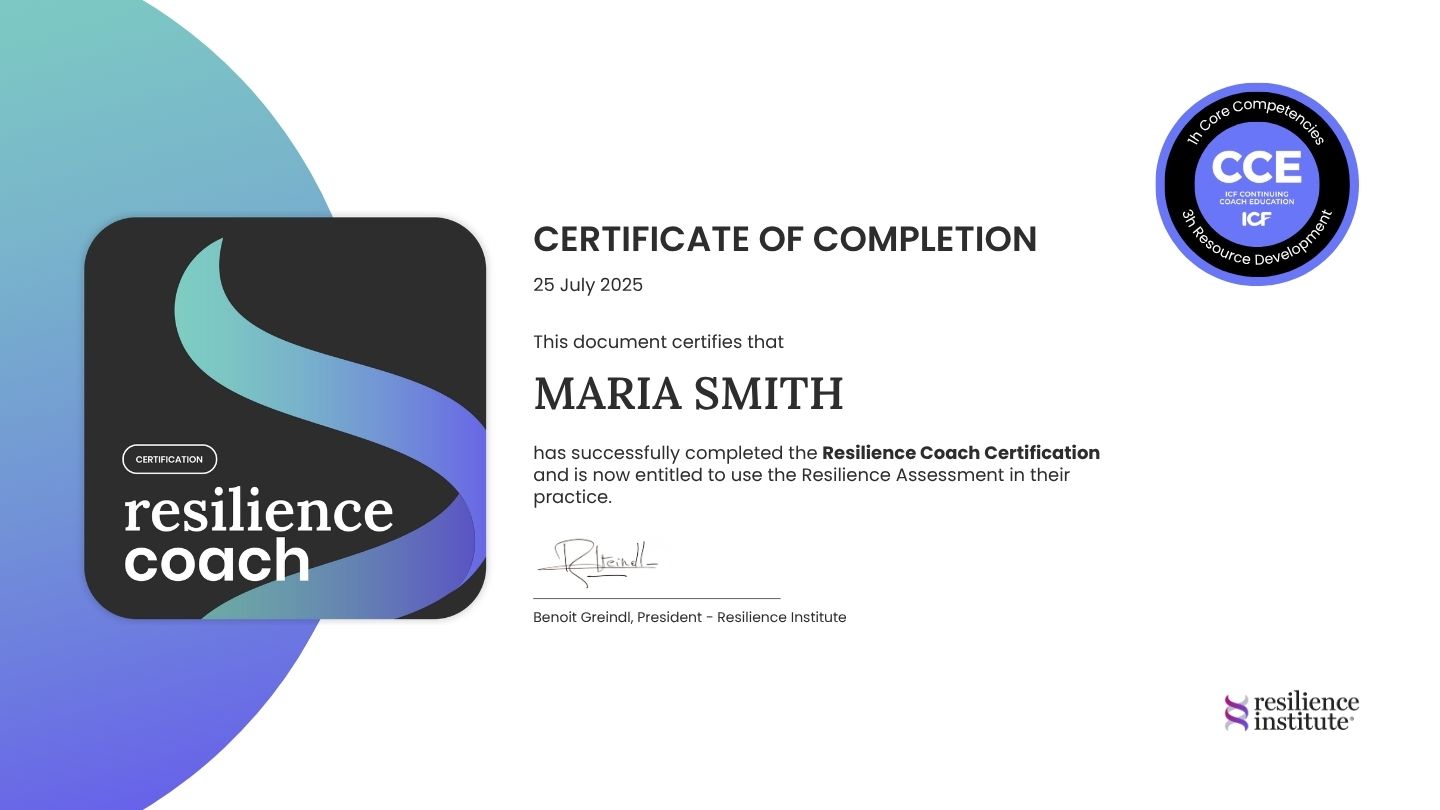
Are there Downsides to Resilience?
Resilience is defined as the psychological ability to adapt and cope with stress and “bounce back” (or forward) from negative occurrences. This trait has always been desirable. Many great philosophers have espoused its virtues, starting with Nietzsche’s famous “that which does not kill us” and ending with Seneca’s statement that hardship strengthens the mind in the same way that physical work strengthens the body.
I dream of never being called resilient again in my life. I’m exhausted by strength. I want support. I want softness. I want ease. I want to be amongst kin. Not patted on the back for how well I take a hit. Or for how many. – Zandashe Brown
Arguably, and depending on your definition of resilience, it can become a bad thing if you take it too far. When taken to extremes, even adaptive skills take a maladaptive turn. Here are some ways that excessive resilience might become a problem.
It can cause you to persist meaninglessly
The first case where extreme resilience can actually do damage is if you’re trying to reach an unrealistic or otherwise unattainable goal. We are told to “go big or go home” or some other version of that, but persisting with an unachievable mission is less effective than adjusting your goals. This might even mean giving up and doesn’t make you a quitter.
Resilience can lead people to push forward with false hope and waste a huge amount of time on meaningless activities. If past experiences indicate you can’t achieve a certain goal the way you’ve gone about it so far, it’s better to adjust your strategy. If not, you’re just wasting time and energy. Excessive resilience tends to go hand in hand with overconfidence and groundless optimism.

Sometimes, it’s nothing more than toxic positivity
On that note, you can mistake excessive optimism for resilience. If taken too far, positivity can make us ignore reality and things that are causing us grief, worry, or stress. We deny our feelings, trying to convince ourselves there is so much to be grateful for.
The pain and negativity go unprocessed. Negativity denotes the level of discomfort someone can experience. Emotions are broadly defined as positive or negative, but that’s generalizing. All emotions can be productive and healthy. They tell our minds and bodies what is going on with us. The ways we express them can be unproductive and unhealthy.
How many times have you heard “be happy” and “stay calm,” either directed at you or someone else? Calmness and happiness are considered default states. It implies that there’s something wrong with you if you’re uncalm or unhappy.
Forcing people to be happy at all costs has a price. They suppress important messages and disregard information that can be crucial to their well-being.
Resilience vs Toxic Positivity: Differences
Resilience is when you recognize an adverse situation and accept negative feelings. Truly resilient people take the time to look after themselves. They are able to hold more than one perspective about a worrying or uncertain situation.
On the other hand, toxic positivity mandates that you act like nothing is wrong. You have to focus on the positive and block negative emotions, forcing yourself to be productive. Such productivity is thinly disguised as denial or avoidance.
Unrealistic retrospection
By definition, resilience implies returning to a previous condition or former state. In some cases, this can be unlikely or downright impossible. People are stuck trying to achieve the “old normal.” Someone who’s had a heart attack or a severe back injury might push themselves to restore their health condition to how it was before the incident. They will find it very difficult to move forward in the new situation. Then, accepting the “new normal” will be even more challenging and frustrating than it needs to be.
When someone is stuck on how their situation “should be,” they don’t acknowledge the options available to them. A more hopeful and realistic approach involves realizing and coming to terms with the fact that you exist in perpetual change. Accepting reality lets people adapt their minds and bodies continuously and cope with adverse changes more easily.
People can use resilience dismissively
Parents can use resilience to dismiss their children’s problems. A child’s distress is uncomfortable to a parent, and the argument that children are resilient can conceal the problem in their eyes, leading to inaction when the child needs protection.
Resilience can be used dismissively toward other adults as well, for example, by berating them for not being “strong enough.”
While telling someone they are resilient is still a compliment, it can mean that you don’t want to see them suffering because it makes you feel awkward. It can be like saying, “Just deal with this, you know you can, don’t bother me.”
It would be more helpful and effective to identify specific components of resilience, such as patience or good communication skills.
It enables harmful tolerance of adversity
Excessive resilience can make people too tolerant of negative events. It can lead to putting up with dead-end or boring jobs or bad bosses for a very long time. A US study found three out of four employees identified their manager to be the worst part of their job. Around two-thirds said they would work for less money if they could have a different manager.
However, people don’t seem to act on these impulses. Despite the advent of passive recruitment and an increasing number of job opportunities, job tenure tends to be stable over time. It could be a case of misguided resilience, at least for some of those who are unhappy with their jobs or even masochism.
Resilience can imply harsh judgment of yourself or others
One of the biggest myths of resilience is that there’s something wrong with someone who can’t adapt and adjust quickly. Being expected to be more resilient and stronger is not supportive. Expecting this from yourself can also do more harm than good. Paradoxically, forcing yourself to be resilient does not build this trait.
We are human and need time to adapt to change, inevitable as it may be. Resilience ceases to be helpful if it becomes a way to point out to someone that they have failed. Being more understanding of yourself and other people will provide much-needed support in turbulent times, which can continue for longer than initially expected.
Resilience can get in the way of leadership effectiveness
Finally, excessive resilience can keep leaders from being as effective as they optimally can. Lack of self-understanding can harm their teams and even the whole organization.
A 2017 study revealed some surprising ways people cope with stressful work environments and jobs. When faced with a challenge, some leaders become unemotional and fearless. They use aggressive mechanisms to cope in order to protect themselves from emotional harm. These rather primitive mechanisms inflate their egos artificially. They become less self-aware and, in the worst case, incapable of maintaining a realistic view of their actions. A realistic concept of the self is key to the development of one’s leadership talent and career potential.
Numerous studies indicate that courageous leaders tend to overestimate their performance and leadership abilities and are unaware of their limitations. This results in an inability to adjust one’s approach to work in changing circumstances. The leader becomes rigidly resilient and impervious to information that could be crucial in improving or at least fixing behavioral faults and weaknesses. Success comes at a cost – denial – when self-enhancement drives resilience.
The Resilience Institute perspective
Foundational to Resilience Institute training is the development of impulse control, empathy and emotional literacy. Our objective is to build a holistic skill set that equips leadership insight (self-awareness), mastery (growth), empathy (connection) and influence (momentum).
The Talentless Leader
Sociobiologists E.O. Wilson and David Sloan Wilson made a surprising discovery. Resilience detaches leaders from reality, blinds them to improvement opportunities, and masks their lack of genuine leadership talent. To explain why this happens, they point out that the leader of any group, from a president to a manager, tends to be very resilient.
Competition between groups tends to be a priority over competition within groups. Examples include the tech innovation race between Microsoft and Google or, going back in time, how ancient tribes fought for geographic territory. To outperform another group, people need to be able to get along within their own and build a strong and solid team. They must choose the right leader: someone who can keep the team motivated not only in the near future but also in the long run and in light of potentially negative circumstances.
Some highly resilient people have a set of traits that aligns them with authoritarian leaders. They are less skilled at bringing a team to work in harmony and compete with rivals effectively. A leader should be resilient, but it’s not enough: they need to possess integrity and put the group’s success before their own.
A manager who considers himself resilient may resist change. If they don’t want to do things in new ways, they can drag the whole team and organization down with their old-fashioned practices and ideas.
Resilience is a highly adaptive and useful trait, especially in the face of adversity. However, it can make people fixated on an impossible goal or excessively tolerant of a counterproductive or unpleasant situation.
Ultimately, someone in this situation can begin to develop symptoms of burnout.
What is Burnout?
Often considered a vague and unhelpful term, burnout is typically understood as a state of emotional, physical, and mental exhaustion that results from prolonged stress or frustration. It is typically attributed to a combination of factors, including overwhelming workloads, lack of control or autonomy, and a lack of support or recognition.
The phenomenon, more accurately described by stages in our downward spiral, can affect anyone, but it is particularly common among people who work in high-stress environments, such as healthcare, social work, and the tech industry. It can also be exacerbated by personal factors, such as a lack of work-life balance, financial stress, or relationship problems.

Symptoms and Tips to Avoid Burnout
Burnout can manifest as a range of symptoms, including fatigue, insomnia, irritability, difficulty concentrating, and a loss of motivation or interest in one’s work.
Resilience should be practiced and supported by daily rhythms. This is why we place so much importance on the relationship between performance and care.
Here are some ways to elevate resilience and avoid experiencing the symptoms of burnout.
Find Purpose
Do you feel the only reason you’re going to work is to get a paycheck at the end of the week or month? Think about why you chose your profession. If you rediscover your purpose, it can help keep stress at bay and avoid burnout. Think about ways to add more meaning to what you do.
Take Control
Try to prioritize your tasks and set realistic goals for yourself. You can also delegate tasks or ask for help when needed. Look for ways to be more autonomous at work. Talk to your manager about getting more control over your projects, tasks, responsibilities, or deadlines. If you’re able to manage your time effectively, you’ll also feel more in control at work.
Take Care of Your Health
Make sure to eat a healthy, balanced diet, exercise regularly, and get enough sleep. This can help you maintain your energy levels and reduce the physical symptoms of stress. Prioritize social connections and practices that promote serendipity and well-being, like yoga, meditating, or enjoying the outdoors. If you’re having a hard time fitting these activities into your schedule, spend some time analysing your priorities.
Set Boundaries
It’s important to create boundaries between your work and personal life. Try to disconnect from work during your downtime and avoid checking your email or taking work calls outside of work hours.
Take Breaks
Make sure to take regular breaks throughout the day to recharge your energy and focus. You can also take a vacation or a mental health day to give yourself a longer break.
Practice Self-care
Take time for activities that you enjoy, such as reading, taking a bath, or spending time with friends and family.

Seek Support
Reach out to friends, family, or a mental health professional for support. They can lend an ear and help you develop strategies for managing stress.
Change Others’ Expectations Toward You
Some of your activities and relationships may be triggering excessive stress. Try to change co-workers, customers, or family members’ expectations of what you’re willing to take on and to what extent. Establish basic rules for your interactions. You might face resistance, but you need to make it clear that you’re asking for change for the sake of your health and your long-term productivity.
Sources:
https://www.psychologytoday.com/us/blog/being-awake-better/202111/the-dark-side-resilience
https://www.linkedin.com/pulse/resilience-toxic-positivity-juliana-vergara/
https://www.mindtools.com/apt37nj/avoiding-burnout
https://hbr.org/2016/11/beating-burnout
https://www.journals.uchicago.edu/doi/full/10.1086/522809 https://getlighthouse.com/blog/why-employees-leave-managers-not-companies/#:~:text=Research%20by%20Hogan%20Assessments%20showed,rated%20by%204%2C906%20direct%20reports.

